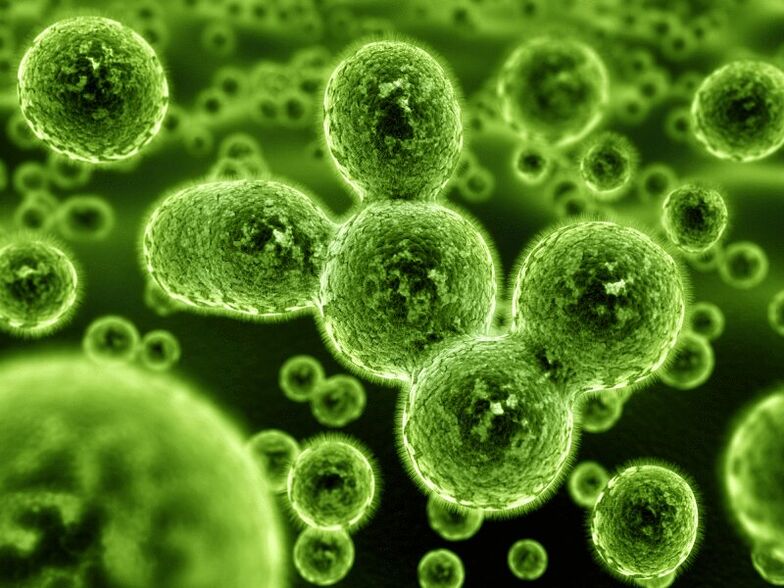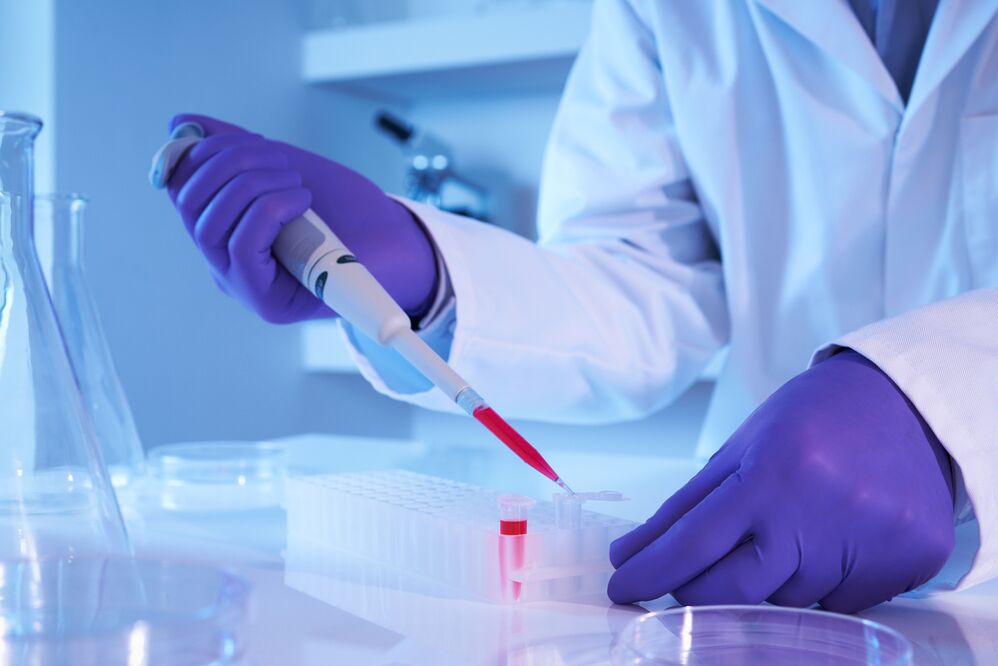
Chronic bacterial prostatitis is one of the most common types of disease. This form of the disease is characterized by the frequency of its manifestation, and the lack of timely treatment can lead to various disorders - sexual dysfunction, as well as contribute to the development of prostatic hyperplasia. But what is the cause of the disease and what will be the consequences if left untreated? Let's take a closer look at these issues.
What is bacterial prostatitis?
Chronic bacterial prostatitis occurs in 15-20% of all people suffering from the underlying disease. This disease is typical of middle-aged men, as they still have a normal sexual life and there is a high probability that harmful bacteria will enter their body. Harmful microorganisms with this type of prostatitis fall directly into the prostate gland, where they actively multiply and disrupt the activity of an organ that is so important for men.
At the same time, inflammation can be stimulated not only by the bacteria themselves, but also by their metabolic products.
Unlike other subtypes of the disease, bacterial chronic prostatitis has more pronounced symptoms and microorganisms can spread not only inside the gland, but also go outside it, disrupting the functions of the bladder and other nearby organs.
Causes of the disease
The main cause of chronic prostatitis of a bacterial nature are bacteria that can enter the body both during sexual intercourse and from the environment. Among the pathogenic microbes, the following should be noted:
- chlamydia;
- streptococci;
- staphylococci;
- Klebsiella;
- Pseudomonas aeruginosa;
- Trichomonas;
- gonococci;
- Enterobacteriaceae;
- E. coli.

The most common cause of the disease is E. coli, as it is found in 80% of patients with prostatitis.
Certain factors and diseases can also worsen the course of the disease and provoke its development. There is a high probability of developing chronic prostatitis in a man who:
- Leads an inactive lifestyle;
- Suffering from pyelonephritis or cystitis;
- Has weak immunity;
- Consumes alcoholic beverages and tobacco products;
- Often overcooled;
- Propensity to stress;
- Suffering from constipation;
- He has an ugly sex life;
- Often comes into contact with direct sources of infection;
- There are hormonal disorders;
- There is no normal intimate life.

It is worth noting that chronic prostatitis, as a rule, is preceded by its acute form, so the patient has some time to prevent the development of the disease. The reason for the development of a permanent form is the spread of bacteria in the body through the circulatory, lymphatic and other systems of the body and as soon as the immune system weakens, for example during colds, the prostate gland can become inflamed, causing discomfort and many others. consequences.
Symptoms
The main symptoms of chronic bacterial prostatitis are similar to other types. The patient may experience:
- Pain in the lower abdomen;
- The inflammatory process is accompanied by a rise in body temperature;
- Muscle fatigue and general weight loss are observed;
- Urination may be accompanied by pain;
- There is pain in the anus and rectum.
It is worth noting that in contrast to the acute form, the symptoms of chronic prostatitis are less pronounced. With exacerbation of the disease, blood particles may be observed in the urine, and the pain syndrome increases significantly.

If you do not pay attention to these symptoms and do not consult a doctor in time, there is a high probability of complications in the form of:
- Development of purulent processes of the genitourinary system;
- Prostate adenomas;
- Problems with urine leakage;
- Stony prostatitis;
- Infertility;
- Sexual dysfunction.
Similar complications are possible when prescribing improper treatment or self-medication without prior consultation with a physician.
Diagnosis of the disease
The diagnosis of chronic bacterial prostatitis can be made on the basis of:
- General blood test - helps to determine the shift of the leukocyte formula to the left, which shows the course of inflammatory processes in the body;
- Routine analysis of urine - will determine the increase in the content of leukocytes and erythrocytes, which are produced to fight harmful microorganisms;
- Three-cup urine sample - this analysis is similar to the usual, only the changes in the 3-cup urine sample will be more noticeable;
- Analysis of prostate secretion - in the presence of bacterial prostatitis in the secretion will appear specific protein fragments;
- Uroflowmetry - observation of a patient to determine the daily amount of urine, as a rule, is performed by the patient himself in a hospital setting, and the results of the calculations are reported to the attending physician.

Diagnostic methods are determined directly by a specialist. It is not possible to make a diagnosis based on a classic examination and interview.
Methods of treatment
In the treatment of bacterial prostatitis is prescribed a course of treatment, which consists of:
- Antibacterial drugs, the duration of administration varies from 1, 5 to 2 weeks;
- Non-steroidal anti-inflammatory drugs - will help relieve inflammation and relieve the patient from pain;
- Muscle relaxants - are prescribed for severe pain that does not allow the patient to empty the bladder, they relax the walls of the bladder.
An optional symptom of bacterial prostatitis is a depressive condition in which the patient is prescribed antidepressants. This helps reduce stress levels throughout the body, reduces the production of hormones that can adversely affect the course of the disease.
Also, in chronic bacterial prostatitis, physiotherapy courses are often prescribed, which may include one or more procedures:
- Electrophoresis - the introduction of special drugs under the influence of electric voltage with a special frequency;
- Ultrasound - activates the process of tissue regeneration, eliminates inflammation, prevents scarring and normalizes metabolism;
- Magnetotherapy - aimed at normalizing the blood circulation;
- Electrical stimulation of smooth muscles - allows you to get rid of congestion, improves the movement of secretory secretions;
- Laser therapy - normalizes the work of the prostate gland.
In some cases, prostate massage can also be used as a preventive measure to help eliminate pain and improve organ function.
Chronic bacterial prostatitis has been observed in recent years in patients with increasing frequency. This is primarily due to the increase in the number of cases of sexually transmitted diseases, especially chlamydia and candidiasis. This type of disease can occur regardless of age, although it most often affects weaker organisms in middle age.
























